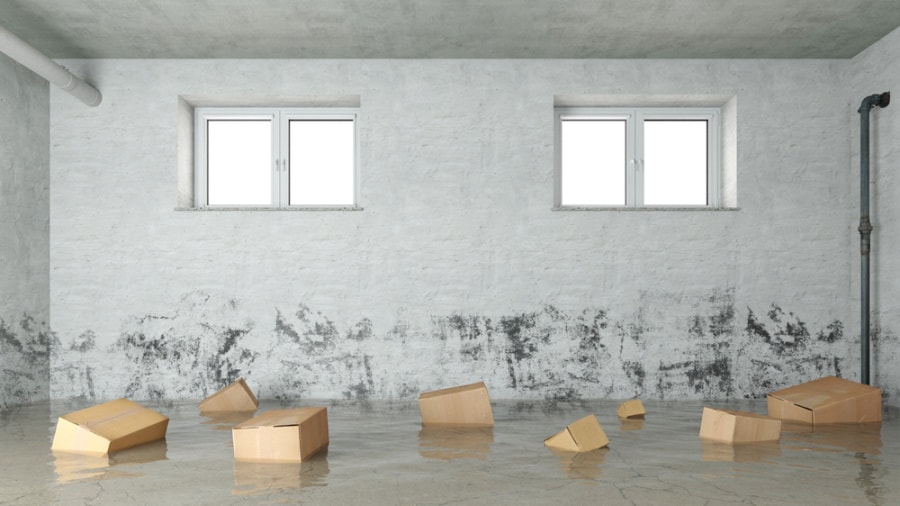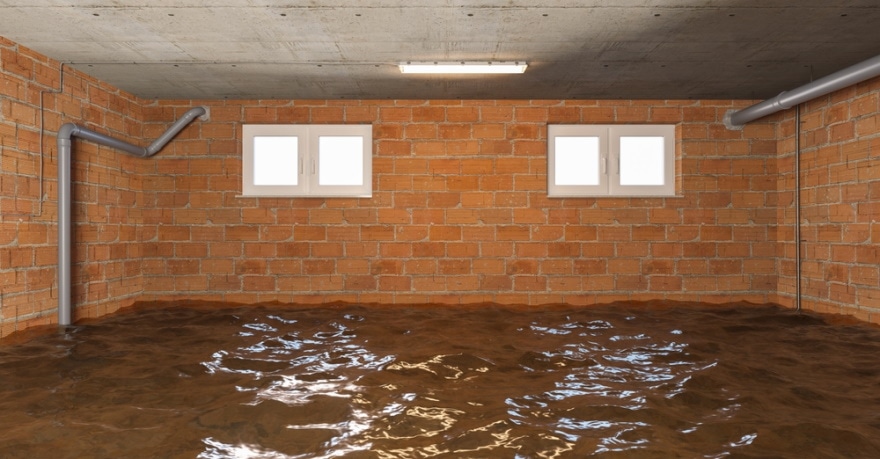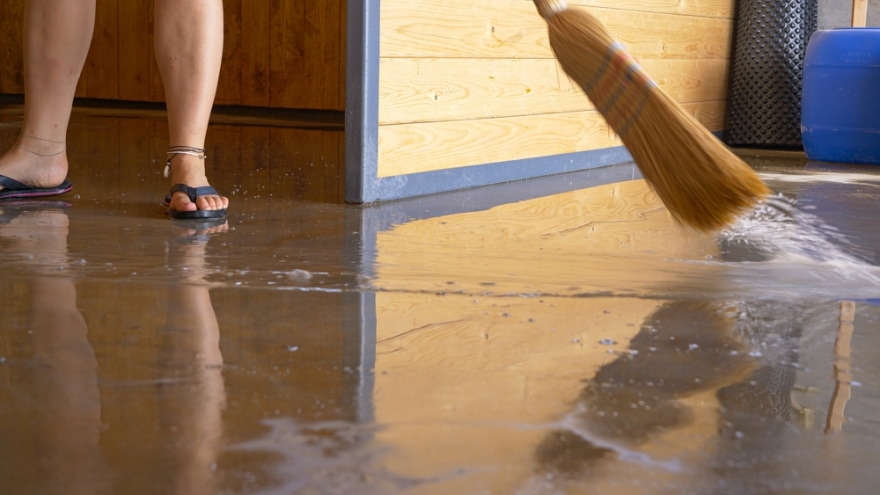My Basement Flooded! Safety, Tips & Prevention
-
Pete Ortiz
- Last updated:

You walk down the steps to find water everywhere. You are not sure what to do first. Your basement is the main housing unit for your furnace, hot water heater, electrical wiring, and plumbing.
Basements can flood from busted water heaters, faulty plumbing, and torrential rains. The water can destroy your belongings, cause damage to your property, and result in serious injuries. Unfortunately, it can happen to anyone. If calling a certified water-damage-restoration professional is not an option, this is what you need to do.
Safety
Stepping into a wet basement can cause electrical shock. Electrical appliances and outlets may be submerged in the water. If your electrical box is in a safe area, shut down the power to the area at risk. If you cannot safely get to the circuit breaker, call an electrician or your electric company.
If your heat source is propane or natural gas, the pilot light on the furnace may have gone out from the water. In that case, you will need to shut off the flow of gas.
Another safety concern with flooding is contaminated water. If water is from the sewage system or you smell an odor, do not enter the area. In this case, it may be necessary to contact a professional to deal with the dangerous water.
In any flooding situation, we recommend that you wear a mask, gloves, boots, and protective clothing. Even a minor flooding incident can contain germs and debris.

Removing the Water and Drying Out the Basement
Once you have determined the basement is safe to enter, you will want to remove the water and dry it out immediately. Any wet carpeting or upholstered furniture will need removal from the basement. Chances are, you will need to replace them.
If your budget allows, you may want to hire a company that is water-damage-cleanup certified. These companies have industrial fans, dehumidifiers, and water vacuums to quickly remove the water from surfaces and air.
If hiring professionals is not an option, or the damage is minimal, you can rent or buy the equipment needed to do the cleanup yourself. Be sure to get a vacuum big enough for the job and elevate the cords for safety.
Once the water is removed, plug in some box fans, or purchase a high-powered fan to quickly dry the area. Drying the area will eliminate moisture from the air and prevent the basement from getting moldy.

Preventing Future Damage
If your home is in a flood zone, you may want to purchase additional insurance from your agent.
If your basement gets water during heavy rainstorms, be sure that any drains in the basement are free from debris and blockages. If the drain is not working efficiently, contact a plumber to remove any clogs.
Family photos or memorabilia that you need to store in your basement should be on shelves or in water-proof containers. Tile flooring may be a better option over carpeting if your basement is at risk of getting water damage.
Another great option for protecting your basement from water damage is to install a sensor. Once the sensor notifies you on your smartphone, you can cut off the electricity and move valuables upstairs.
Last but not least, if you do not have an electric sump pump in the basement, get one. A back-up battery-operated sump pump is a good idea in case of a power outage. We recommend that you get advice from your plumber. He can help you determine the best one for your home.
In Conclusion
Even if you are not in a flood zone and you are not prone to flooding, you can still get water in the basement. Faulty water heaters, plumbing, and sewer systems put us all at risk of flooding. Our best defense is to attempt to prevent it from happening and be prepared in case it does.
Featured Image Credit: Robert Kneschke, Shutterstock
Contents


